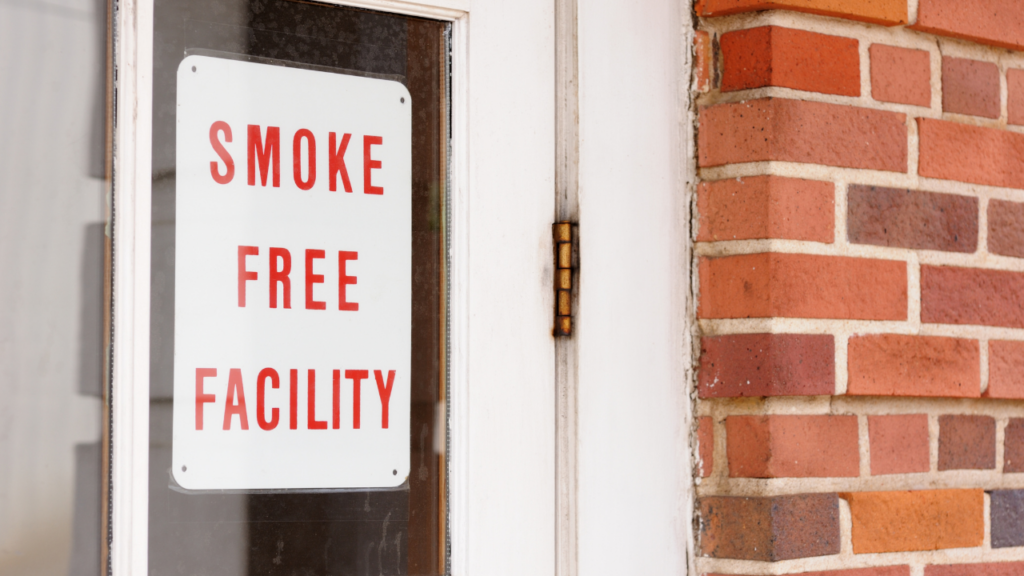Smoke-Free Rentals Why Landlords Should Just Say No
As the demand for healthier living environments increases, landlords are considering the implementation of smoke-free policies in their rental properties. This article explores the benefits of such policies, highlighting the positive impact on health, finances, tenant satisfaction, and legal compliance.

Health Benefits
Protecting Tenants’ Health
Secondhand smoke is a well-documented health hazard, causing respiratory problems, heart disease, and even cancer. For vulnerable populations like children, the elderly, and individuals with respiratory conditions, exposure can be particularly harmful. A smoke-free policy ensures that all tenants can enjoy a safer, healthier living environment.
Creating a Health-Conscious Community
Implementing a smoke-free policy can attract health-conscious tenants who prioritize their well-being. These tenants often value a clean, smoke-free atmosphere and are more likely to appreciate and respect the property. Testimonials from landlords who have adopted smoke-free policies often highlight increased tenant satisfaction and a stronger sense of community.
Financial Advantages
Reduced Maintenance and Cleaning Costs
Smoking indoors can cause significant damage to rental properties. Nicotine stains on walls, lingering odors, and burn marks on carpets and furniture all require extensive cleaning and repairs. Smoke-free properties generally incur lower maintenance costs, preserving the property’s value and reducing turnover expenses. For example, the American Lung Association provides data showing that cleaning a smoking unit can cost up to seven times more than a non-smoking unit.
Lower Insurance Premiums
Many insurance providers offer discounts for properties with smoke-free policies due to the reduced risk of fire-related incidents. This can lead to substantial savings on insurance premiums. Landlords can check with their insurance companies to see if they qualify for these discounts, making smoke-free policies a financially savvy choice.
Legal and Compliance Aspects
Understanding Legal Rights and Responsibilities
Landlords have the legal right to implement smoke-free policies in their rental agreements. It is crucial to clearly outline these policies in the lease and ensure all tenants are aware of the rules. The U.S. Department of Housing and Urban Development (HUD) offers resources and guidance for landlords looking to establish smoke-free environments.
Compliance with Local Regulations
Many local governments support smoke-free housing initiatives and have regulations in place to promote these environments. Adhering to these regulations helps landlords stay compliant and avoid potential legal issues. The Centers for Disease Control and Prevention (CDC) provides information on local smoke-free laws and the benefits of smoke-free housing.
Tenant Satisfaction and Retention
Meeting Market Demand
Studies show that a significant portion of renters prefer smoke-free living. Implementing a smoke-free policy can make a property more attractive to potential tenants, increasing demand and occupancy rates. According to a survey by the National Multifamily Housing Council, a growing number of renters consider smoke-free housing a top priority when choosing where to live.
Improving Tenant Relations
A smoke-free environment can lead to improved relationships between landlords and tenants. Tenants are more likely to appreciate landlords who prioritize their health and well-being, resulting in higher satisfaction and longer tenancies. Positive reviews and word-of-mouth referrals from happy tenants can further enhance a property’s reputation.
Implementation Strategies
Developing a Smoke-Free Policy
Creating a smoke-free policy involves several steps:
- Drafting the Policy: Clearly outline the smoke-free areas, which can include individual units, common areas, and outdoor spaces.
- Updating Leases: Include the smoke-free policy in all new leases and lease renewals.
- Communicating with Tenants: Inform current tenants about the policy change and provide them with ample notice. The Smoke-Free Housing Project offers templates and resources to help landlords draft and implement these policies effectively.
Enforcing the Policy
Effective enforcement is key to maintaining a smoke-free environment. Landlords should:
- Monitor Compliance: Regularly inspect the property for signs of smoking and remind tenants of the policy.
- Handle Violations: Address violations promptly and consistently. Providing support and resources to help tenants quit smoking can also be beneficial.
- Seek Support: Organizations like the American Nonsmokers’ Rights Foundation offer guidance and resources for landlords enforcing smoke-free policies.
Conclusion
Adopting smoke-free policies in rental properties offers numerous benefits for landlords and tenants alike. From improved health and reduced maintenance costs to enhanced tenant satisfaction and legal compliance, smoke-free rentals are a win-win. Landlords are encouraged to consider implementing these policies to create healthier, more attractive living environments.
Additional Resources
For landlords in Canada looking to implement smoke-free policies, the following resources can provide valuable information and support:
- Smoke-Free Housing Ontario: Smoke-Free Housing Ontario offers resources and guidance for landlords on creating and enforcing smoke-free policies.
- Health Canada: Health Canada provides information on the health risks of smoking and secondhand smoke, as well as resources for smoking cessation.
- Canadian Lung Association: Canadian Lung Association offers educational materials and support for creating healthier living environments.
- Non-Smokers’ Rights Association: NSRA Canada provides advocacy and resources for smoke-free public places and housing.
By leveraging these resources, landlords can effectively transition to smoke-free rentals, benefiting both their tenants and their bottom line.
